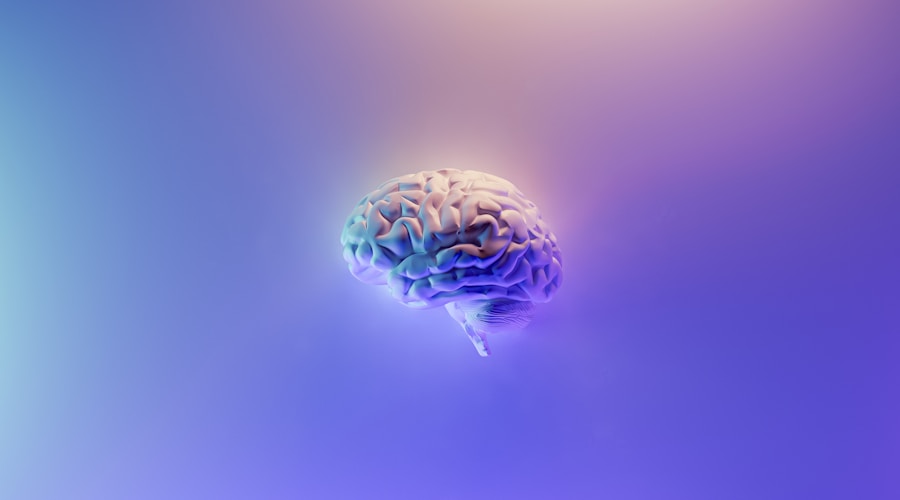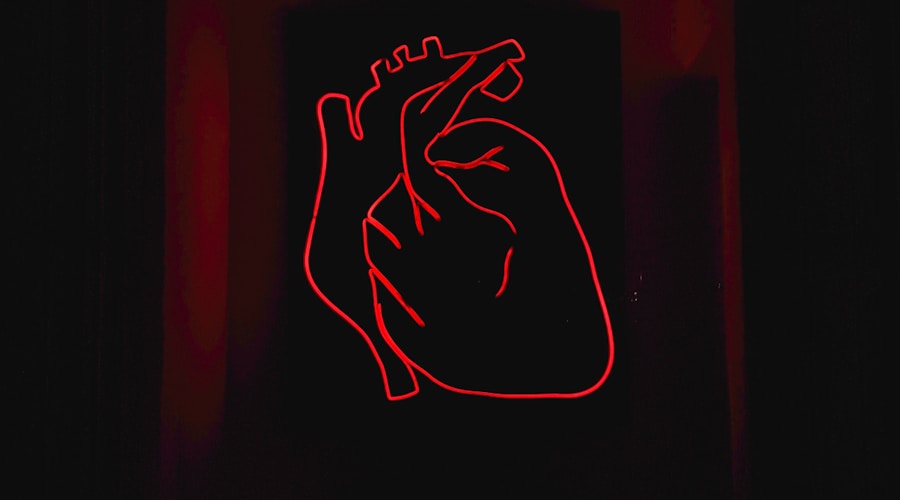Loneliness and social isolation can have a significant impact on your mental health. The feeling of being disconnected from others can lead to feelings of sadness, anxiety, and even depression. In this article, we'll explore the connection between social isolation and mental well-being, and how it affects our emotional and physical health. We'll also discuss coping strategies and the role of technology in combatting loneliness.
Introduction: Understanding Loneliness and Mental Well-being
Loneliness and social isolation can have a profound impact on your mental health. It's not just about feeling a bit sad or bored; social isolation can actually lead to serious mental health issues. When you're feeling lonely, it's like being in a constant state of stress. Your body goes into fight-or-flight mode, and that can take a toll on your mental well-being.
It might seem like an exaggeration, but the effects of loneliness are very real. As psychiatrist Dr. Vivek Murthy puts it, "The data shows that loneliness is associated with a reduction in lifespan similar to that caused by smoking 15 cigarettes a day". Yes, loneliness can be that serious.
We're social creatures by nature, and when we're denied that social interaction, it can have a huge impact on our mental health. It's not just about enjoying the company of others; it's about feeling connected and supported. Psychologist John Cacioppo explained, "Being connected to others socially is widely considered a fundamental human need - crucial to both well-being and survival." So, if you're feeling lonely, it's important to recognize that it's not just a passing feeling, but something that can have a real impact on your mental health.
How the Human Brain Responds to Being Alone
When you find yourself feeling isolated, your brain goes through some significant changes. Dr. John Cacioppo, a leading expert on loneliness, explains that "our brains are wired to connect with others. When we are deprived of social interaction, our brain goes into a state of hyper-vigilance, alerting us that something is wrong."
One of the key players in this process is the amygdala, the part of the brain responsible for processing emotions. When we are alone, the amygdala becomes more active, making us more sensitive to potential threats and leading to feelings of anxiety and fear. This heightened state of alertness can also lead to difficulties with concentration and decision-making.
Furthermore, the prefrontal cortex, which is involved in regulating emotions and social behavior, can show decreased activity when we are isolated. This can result in a decrease in our ability to empathize with others and understand social cues, leading to further withdrawal from social interactions.
It's important to note that these responses are not a sign of weakness or failure. It's simply our brain's way of responding to a lack of social connection. As Dr. Cacioppo states, "Understanding these brain responses can help us approach social isolation with compassion and understanding, both for ourselves and others."
Understanding how your brain responds to loneliness can help you recognize and acknowledge your feelings, and take steps to address them. Recognizing that these responses are a natural part of being human can also help you feel less alone in your experience.
Remember, your brain is simply wired for connection, and feeling lonely is a signal that you need to reach out and connect with others. Acknowledging this and taking steps to reconnect can help regulate your brain's responses and improve your mental well-being.

The Emotional Impact of Social Separation
When you're feeling lonely and isolated, it's not just a fleeting feeling of sadness - it can have a deep emotional impact on your overall well-being. The lack of social connection and meaningful relationships can lead to feelings of emptiness, sadness, and even despair. According to renowned psychiatrist Dr. M. Scott Peck, "The absence of love is the most abject pain."
Imagine coming home from a long day at work and having no one to share your thoughts, experiences, and emotions with. It can leave you feeling emotionally drained and unfulfilled. Your emotional health takes a hit when you don't have someone to confide in, seek support from, or simply share a laugh with.
Feeling socially isolated can also lead to a decreased sense of self-worth. Psychologist Guy Winch emphasizes that "loneliness causes people to devalue themselves, and that can have serious consequences for their mental health."2 Your self-esteem and confidence may suffer when you're disconnected from social interactions.
Moreover, the impact of social separation can manifest as increased anxiety and heightened stress levels. Without the comforting presence of friends and loved ones, your mind may spiral into a cycle of worry and unease. The lack of emotional support can leave you feeling vulnerable and overwhelmed.
Overall, the emotional impact of social separation is profound and can significantly affect your mental well-being. Loneliness can elicit a range of distressing emotions, from sadness and despair to anxiety and stress. It's crucial to recognize the emotional toll of isolation in order to address it and seek the support you need to thrive.
Physical Health Effects: The Mind-Body Connection
We often underestimate the impact of social isolation on our physical health, but the mind and body are deeply interconnected. Research has shown that chronic loneliness can take a toll on your physical well-being.
According to Dr. Vivek Murthy, former Surgeon General of the United States, "Loneliness and weak social connections are associated with a reduction in lifespan similar to that caused by smoking 15 cigarettes a day."
When you are feeling lonely and isolated, your body goes into a state of heightened stress. This can lead to increased levels of the stress hormone cortisol, which, over time, can contribute to a range of health issues such as high blood pressure, heart disease, obesity, and a weakened immune system.

Coping Strategies: Ways to Combat Loneliness
Dealing with feelings of loneliness can be challenging, but there are coping strategies that can make a difference in combating this state of mind. Remember, you are not alone in feeling lonely, and it is okay to seek help and support. Here are a few strategies to consider:
Reach Out: Don't be afraid to initiate social interactions. Call a friend, send a message, or schedule a virtual meet-up. As social psychologist Dr. Ruth Baer puts it, "Connecting with others is crucial for our mental well-being. Taking the first step can be tough, but it's worth it."
Pursue Hobbies: Engaging in activities you enjoy can help distract you from feelings of isolation. Whether it's painting, gardening, or playing an instrument, hobbies can provide a sense of purpose and joy. Clinical psychologist Dr. Evan Kanter advises, "Immersing yourself in activities that bring fulfillment is a great way to combat loneliness."
Join Communities: Consider joining clubs, support groups, or volunteer organizations. Being part of a community can provide a sense of belonging and connection. Author and speaker Brené Brown says, "Belonging is such a fundamental human need. Finding your tribe can make a huge difference in how you feel."
Practice Self-Care: Taking care of your physical and emotional well-being is essential. Get enough sleep, eat healthily, exercise regularly, and practice mindfulness or meditation. Self-care specialist Dr. Christie Kederian emphasizes, "Investing in yourself is a powerful way to combat loneliness and improve your mental health."
Seek Professional Help: If feelings of loneliness persist and significantly impact your daily life, consider seeking support from a mental health professional. Licensed therapist Dr. Sarah Johnson reassures, "Seeking help is a courageous step. A therapist can provide guidance and support to help you navigate through loneliness."
Remember, these strategies may not completely eliminate feelings of loneliness, but they can certainly help you cope better. Embrace them, and be gentle with yourself. You deserve to feel connected and supported.
The Role of Technology in Social Interaction and Isolation
In today's digital age, technology plays a significant role in how we connect with others. From social media platforms to video calls, technology has made it easier for us to stay in touch with loved ones, even when we can't be with them in person. However, it's essential to recognize that while technology can help bridge the gap between us and our social connections, it can also contribute to feelings of isolation.
When used mindfully, technology can enhance our social interactions and provide a sense of connection. However, it's crucial to be aware of the potential downsides. Psychologist Dr. Alex Lickerman explains, "The trouble with social media is that you can be surrounded by people and still feel completely alone." It's easy to fall into the trap of comparing your life to others' highlight reels online, leading to feelings of inadequacy and loneliness.
As you navigate the role of technology in your social interactions, it's important to strike a balance. While it can be a valuable tool for staying connected, make sure to prioritize in-person interactions and set boundaries around your screen time. Remember, true connection goes beyond the digital realm, so make an effort to cultivate meaningful relationships offline as well.

Long-Term Consequences of Chronic Social Isolation
Loneliness is not just a passing feeling; it can have severe long-term consequences on your mental and physical well-being. When you consistently feel disconnected from others, it can take a toll on your overall health, leading to a range of issues that affect your quality of life. Research has shown that chronic social isolation can have lasting effects on the brain and body.
Chronic social isolation has been linked to an increased risk of mental health conditions such as depression and anxiety. Over time, the lack of social interaction and emotional support can lead to a decline in mental health. In fact, studies have indicated that loneliness and social isolation significantly increase the risk of premature death, highlighting the seriousness of these long-term consequences.
Moreover, long-term social isolation can also have a negative impact on your physical health. It has been associated with an increased risk of developing conditions such as high blood pressure, heart disease, and a weakened immune system. The chronic lack of social connection can indeed be detrimental to your overall well-being, affecting both your mental and physical health.
The long-term consequences of chronic social isolation are indeed alarming, but it is important to remember that there are ways to combat loneliness and improve your social connections. By reaching out to friends and family, joining community groups, or seeking professional help, you can take steps to alleviate the impact of chronic social isolation on your mental and physical health.
No one should have to face the long-term consequences of chronic social isolation alone. It's essential to prioritize your social connections and seek support when needed. By taking proactive measures, you can minimize the negative effects of loneliness and improve your overall well-being.
Conclusion
In conclusion, it is crucial to recognize the profound impact that social isolation can have on our mental health. As human beings, we are wired for connection, and when we are deprived of meaningful social interactions, it can take a toll on our emotional well-being. The evidence is clear: chronic loneliness can lead to depression, anxiety, and other mental health disorders.
Remember, you are not alone in feeling the effects of social isolation. As Dr. Vivek Murthy, former Surgeon General of the United States, once said, "Loneliness and weak social connections are associated with a reduction in lifespan similar to that caused by smoking 15 cigarettes a day."
It is important to take proactive steps to combat loneliness and nurture our social connections. Whether it's through reaching out to friends and family, engaging in hobbies, or seeking professional help, there are ways to foster meaningful relationships and support your mental well-being.
As you navigate the complexities of social interaction and isolation, be gentle with yourself. Understand that it's okay to feel lonely at times, but also recognize the importance of seeking out connection and support. Your mental health is worth investing in, and by prioritizing social connections, you can create a more fulfilling and emotionally healthy life for yourself.

2M. Scott Peck, "The Road Less Traveled: A New Psychology of Love, Traditional Values and Spiritual Growth" (1978)
3Guy Winch, "The case for emotional hygiene" (2014)
4Vivek H. Murthy, Together: The Healing Power of Human Connection in a Sometimes Lonely World, (2020)
5Cacioppo, J. T., & Patrick, W. (2008). Loneliness: Human nature and the need for social connection. W. W. Norton & Company.
6Baer, R. (2016). The Mindful Path to Self-Compassion. Guilford Publications.
7Brown, B. (2010). The Gifts of Imperfection: Let Go of Who You Think You're Supposed to Be and Embrace Who You Are. Hazelden Publishing.
8Kederian, C. (2020). Next Level Self-Care: Your Guide to Traditional and Non-Traditional Physical and Mental Well-Being. Chronicle Books.
9Johnson, S. (2018). The Loneliness Cure: Six Strategies for Finding Real Connections in Your Life. Little, Brown.
10Lickerman, Alex. The Undefeated Mind: On the Science of Constructing an Indestructible Self. HCI, 2012.
11Vivek H. Murthy, "Work and the Loneliness Epidemic," Harvard Business Review, 2017.